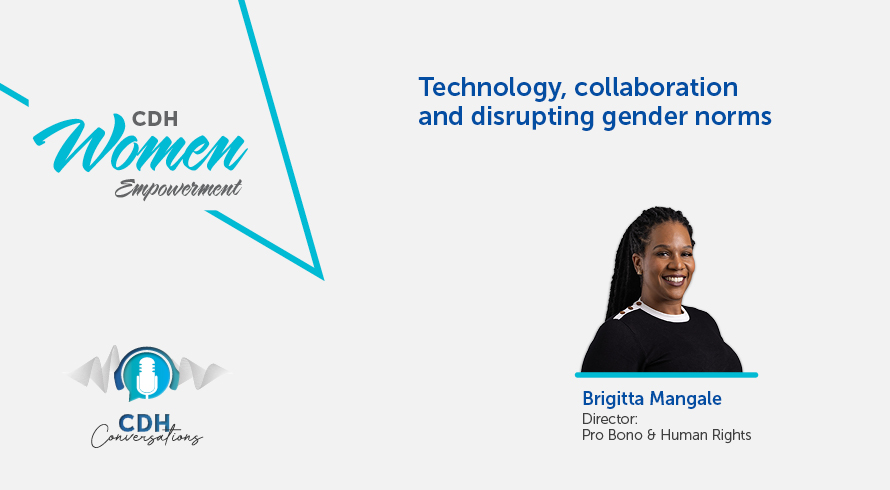Part 1 - The Employment Equity Act
At a glance
This is the first episode of a series of short podcasts where our Employment Law experts unpack the implications of the recent Employment Equity Amendments on employers. This episode features Practice Head Aadil Patel, and Professional Support Lawyer Nadeem Mahomed.

Part 1 - The Employment Equity Act
Podcast
Part 1 - The Employment Equity Act
Podcast
Transcript
Aadil Patel: Hello. Good morning, good afternoon, good evening. Whatever time you're listening to this podcast, welcome to another session of CDH conversations. Today we're talking about the Employment Equity Act, the drafts, sectoral determinations, and this is part 1.
My name is Aadil Patel. I am the National Practice Head at Cliffe Dekker Hofmeyr. And with me is Nadeem Mahomed, our professional support lawyer. And we are going to be providing you with a general overview of what to expect. You would've probably seen the media reports where the Democratic Alliance has stated that the draft sectoral targets are the worst form of social engineering. Solidarity, the trade union, has launched an application at the labor court where they seek to challenge the Employment Equity Amendment Act. The purpose of today's discussion is not to get into those nuanced debates, but rather to assume that this is going to be law from a sectoral determination perspective. And what is most important is that you have a period of 30 days within which to comment on those sectoral determination, calculated from Friday the 12th of May, 2023. So if you are going to comment on that, either as an employer or as an employee organization or a trade union or an employee organizations, you best start working on those. It's rather intensive, but the purpose of today's conversation is generally to provide you with an overview of the act. And thereafter we can engage in a further discussion or conversation around it. To introduce the Employment Equity Amendment Act, let me hand over to my colleague, Nadeem Mahomed. Nadeem, why don't you give us a general overview of the Act and we can then take it from there. Thank you.
Nadeem Mahomed: Sure. Thank you for that, Aadil. So I think it's quite an interesting time to be looking at the Employment Equity Act in context of these most recent amendments. And if people recall that it was approximately, almost to the date a year ago, that Parliament actually passed the Employment Equity Bill as it was then, and then sent it on to the president for signing, which the president then did earlier this year on the 14th of April, 2023. Now, there are few amendments which the Act introduces, but I think we can focus on 2 of the major amendments.
The first is the amendment to the definition of a designated employer. And what the amendments effectively do is remove small employers from this definition. So basically an employer who employs fewer than 50 employees, irrespective of their annual turnover, because prior to the amendments, the annual turnover was an important component in identifying who was a designated employer. So with the amendments, irrespective of the annual turnover and employer employees, fewer than 50 employees is no longer within the ambit of a designated employer and will no longer be required to comply with certain parts of the Employment Equity Act, especially those sections that deal with affirmative action.
But the second very important amendment that, Aadil, that you alluded to as well, was the ability for the, or the power that the Minister of Employment and Labor has, to set sectoral targets based on or identified by economic sectors. And that's I think what we can focus on in this podcast today. Just before we continue, I think it is important to think about the context of the Employment Equity Act. And the Employment Equity Act was implemented about 3 or 4 years into our new democracy post 1994. And the primary purpose of the Employment Equity Act was and continues to be to promote the right to equality and to ensure that all employees receive equal opportunities and that employees are treated fairly by their employers.
But a core focus of the Employment Equity Act was the implementation of employment equity and affirmative action to redress the effects of historical discrimination and the legacy of apartheid.
And so, in reading these sectoral targets that have now been implemented, or well, at least the drafts have been published by the Minister of Employment and Labor, it is important to read it within that context and then determine whether it actually achieves the primary purpose of the Employment Equity Act or does it depart from that very specific purpose.
Aadil Patel: Thank you, Nadeem. I think that one other important aspect to mention as a general overview is; if you fail to comply with the Employment Equity Amendment Act when it does become law. So let's just stop there. It has been signed by the president. Its implementation or effective date has not yet been announced. But once it comes into being, if an employer fails to comply with it, you will be unable to undertake work for any organ of state so that any government department or any state or organization, any local government and municipality. You will therefore be receiving a certificate of compliance from the Department of Labor for confirmation of your compliance with the Employment Equity Act. As we have seen in the more recent past, the Department of Labor is taking a rather active step in ensuring compliance. Most recently, the Department of Labor has investigated or is investigating Barloworld and Truworths where the department, as reported in Money Web has said that it intends to take legal action against these companies. The legal application will ask the courts to impose a fine of 1.5 million rands or 2% of turnover. And most importantly, we want to warn employers to take matters of employment equity seriously. In conversations of these, in the next part of the series, we will be dealing with what are the fines that you can expect, how to comply and ensure compliance with the Employment Equity Act. And finally, we are going to talk about what to do, when engaging in any sort of commercial activity like a sailor business or a merger, what are the roadblocks that you need to look at.
Nadeem, given the time period, I think we have provided our listeners with a general overview of the Employment Equity Act, as well as the sector targets. The lesson to be learned is, get your comments in on those sector targets as soon as possible. That's part one. And part two is to study the Employment Equity Act because no longer will you as an employer be able to establish targets on your own. This is now going to be government's responsibility and it's going to ensure strict compliance. We wait and see what is to happen with Solidarity's application at the Labor court, and as the DA has promised, it intends challenging this piece of legislation all the way to the constitutional court. Thank you to our listeners, and please tune in for the next series of our Employment Equity Act series. Thank you.
The information and material published on this website is provided for general purposes only and does not constitute legal advice. We make every effort to ensure that the content is updated regularly and to offer the most current and accurate information. Please consult one of our lawyers on any specific legal problem or matter. We accept no responsibility for any loss or damage, whether direct or consequential, which may arise from reliance on the information contained in these pages. Please refer to our full terms and conditions. Copyright © 2026 Cliffe Dekker Hofmeyr. All rights reserved. For permission to reproduce an article or publication, please contact us cliffedekkerhofmeyr@cdhlegal.com.
Subscribe
We support our clients’ strategic and operational needs by offering innovative, integrated and high quality thought leadership. To stay up to date on the latest legal developments that may potentially impact your business, subscribe to our alerts, seminar and webinar invitations.
Subscribe



